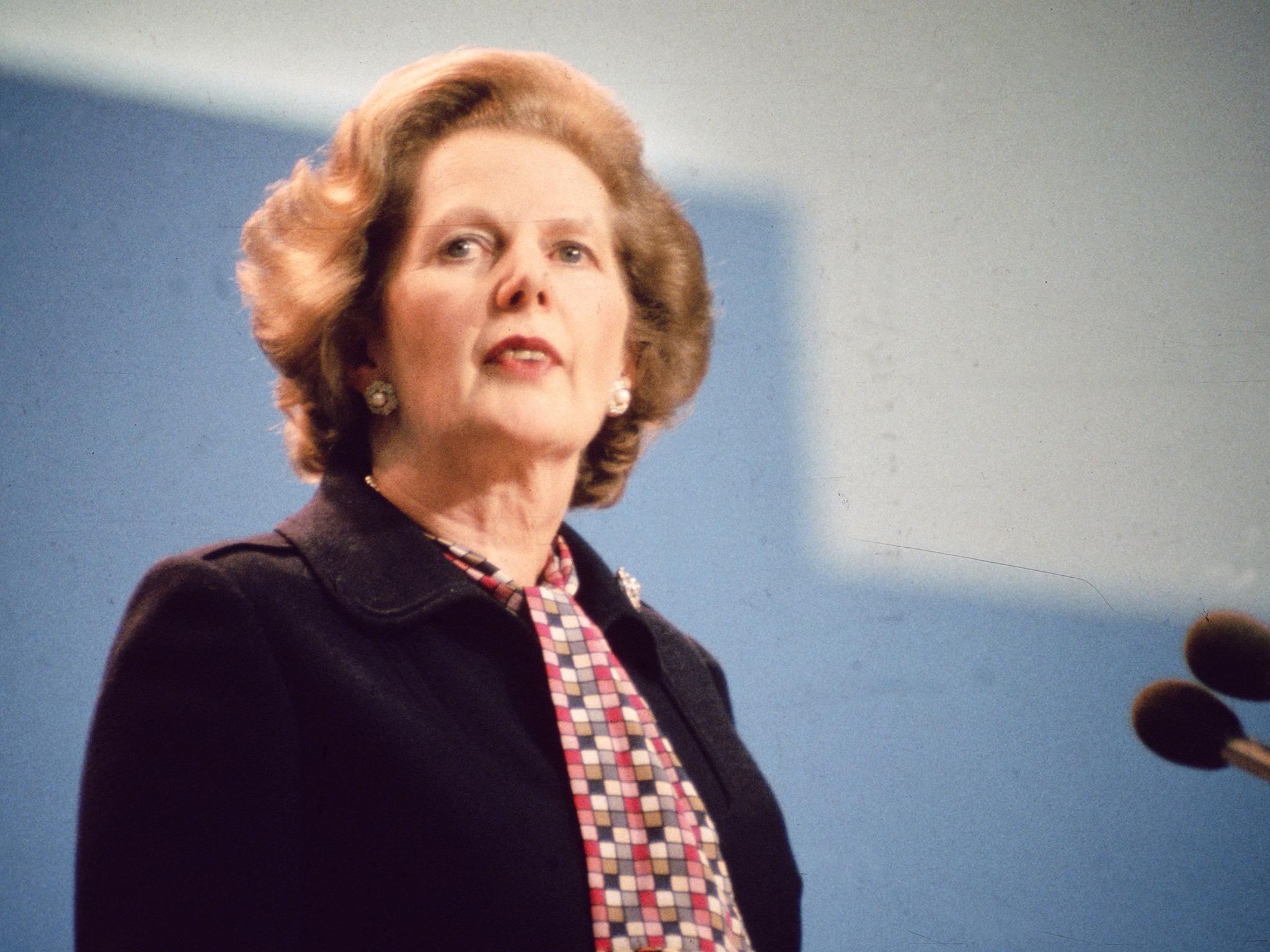Revealed: The speech Margaret Thatcher dared not give after Brighton IRA bombing
She was going to name the individuals 'out to destroy democracy' to make them understand the harm they were causing

Your support helps us to tell the story
From reproductive rights to climate change to Big Tech, The Independent is on the ground when the story is developing. Whether it's investigating the financials of Elon Musk's pro-Trump PAC or producing our latest documentary, 'The A Word', which shines a light on the American women fighting for reproductive rights, we know how important it is to parse out the facts from the messaging.
At such a critical moment in US history, we need reporters on the ground. Your donation allows us to keep sending journalists to speak to both sides of the story.
The Independent is trusted by Americans across the entire political spectrum. And unlike many other quality news outlets, we choose not to lock Americans out of our reporting and analysis with paywalls. We believe quality journalism should be available to everyone, paid for by those who can afford it.
Your support makes all the difference.The speech Margaret Thatcher was going to deliver 30 years ago this month could have gone down in history as the most provocative in her stormy career.
She was going to name the individuals who - she claimed - were out to destroy democracy because they were “too blind or two wicked” to understand the harm they were causing.
She was going to accuse the Labour leader Neil Kinnock of having ceded control of his party to the miners’ union President Arthur Scargill and accuse the future Foreign Secretary, Jack Straw, of abetting lawbreakers.
But the speech, as drafted, was never delivered, because at 2.54 am on 12 October 1984 – less than 12 hours before she was due to speak – an IRA bomb ripped through the Grand Hotel, Brighton, where Thatcher and other leading Conservatives were staying.
Five people were killed and 31 injured. In the middle of the night, Thatcher coolly announced in Brighton police station that the final day of the conference would go ahead as planned, but her speech had to be rapidly rewritten, with the most provocative attacks on Labour and the unions removed.
A typed draft is among a huge collection of Thatcher’s private papers from 1984, published today by the Thatcher archive, which can be read online.
One of Margaret Thatcher’s most famous phrases was “the enemy within” applied to leaders of the 1984-85 miners’ strike, and to Labour councillors who were defying the recently passed Rates Act by refusing to implement the cuts needed to keep rate increases within the law.
The historian Chris Collins, from the Margaret Thatcher Foundation, believes that she borrowed the phrase from John Wesley’s Methodist Hymnal.
She used it at a closed meeting for Conservative MPs, but never uttered it in public – though it would have featured in her conference speech, a week after the Labour Party’s rowdy conference in Blackpool.
She planned to say: “Several months ago, I used the phrase 'the enemy within'…I was referring to those people in Britain who are the enemies of freedom and democracy itself. And in case anyone doubted me, they were there for all to see in Blackpool last week.
“Mr Kinnock, for all his words – and there is no shortage of those – has been hijacked, first by Mr Scargill, then by anti-democrats at his own party conference.”
The ‘anti-democrats’ in her sights included delegates who had voted to support councillors who were defying the law. She was going to condemn that as “a rallying call to anarchy, and ultimately to tyranny, by those too blind, or too wicked, to grasp that by that road, liberty will be suppressed.”
She proposed to name Jack Straw, then a shadow environment minister, as an alleged culprit, because he had told Labour’s local government conference that “the question is not the rule of law, but which law should rule”.
Her speech was hastily rewritten on the morning after the bombing, with all attacks on Labour removed except for a short extract condemning the policy of unilateral nuclear disarmament. No Labour politicians were mentioned by name.
Over the weekend, Mrs Thatcher dispatched dozens of letters to well-wishers. The people who must have least expected to hear from her were William and Carol Thorne, of Ruffles Hair Salon in Hove, East Sussex.
Mrs Thatcher liked to have her hair done several times a week. She wrote apologising for cancelling her appointment on the morning after the bombing. "I was very pleased with the way you did my hair, and the fact that it lasted so well through Friday was the real test," she assured them.
Subscribe to Independent Premium to bookmark this article
Want to bookmark your favourite articles and stories to read or reference later? Start your Independent Premium subscription today.
Join our commenting forum
Join thought-provoking conversations, follow other Independent readers and see their replies
Comments